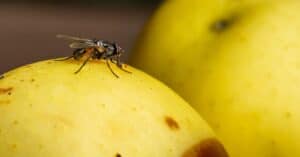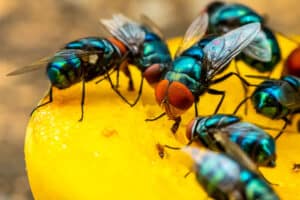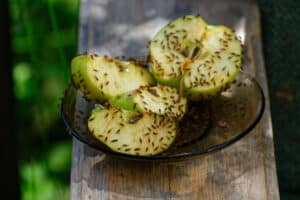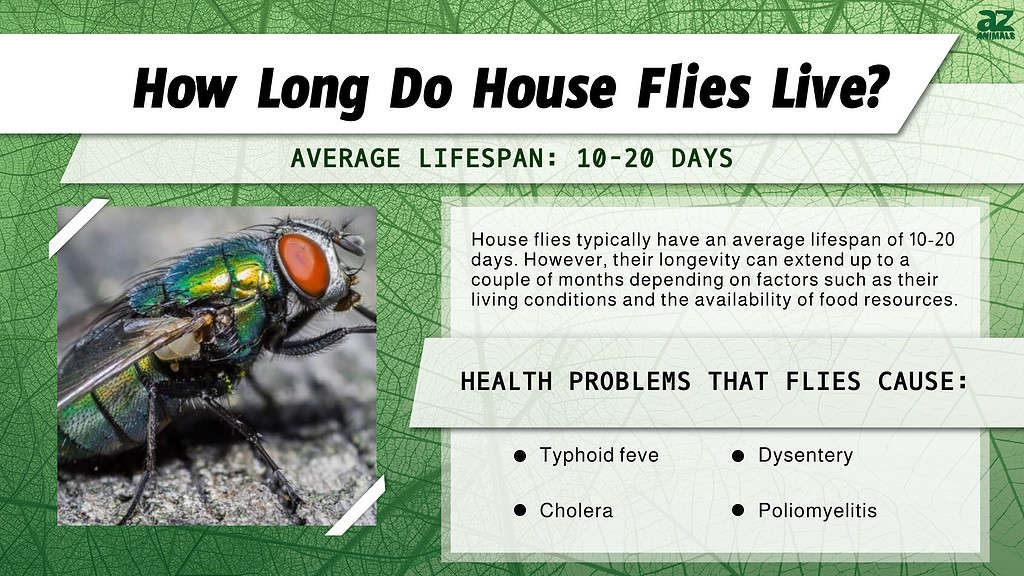
While most of us end up using a fly swatter on the common house fly, you may be wondering how long do house flies live without human intervention? It’s likely they don’t live long, like many insects, but it’s time to determine just how long that may be.
In this article, we will address how long house flies live, their average life cycle from eggs to adulthood, and how their lifespan compares to other insects that fly.
While bugs usually live a short and harrowing life, let’s learn all about what it’s like for the common house fly.
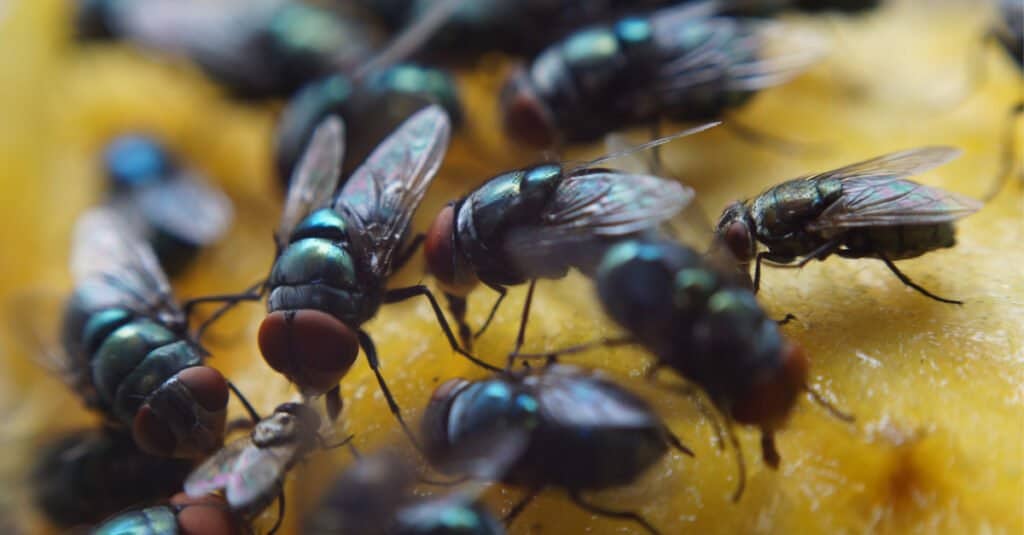
The house fly is well known throughout the world, and is a common pest in just about all of these places.
©iStock.com/reyborfrla
How Long Do House Flies Live?
House flies live an average of ten to twenty days, and as long as a couple months, depending on their living conditions and food availability. Cooler temperatures and ample sugar and protein sources are key to a house fly’s survival.
The house fly is well known throughout the world and is a common pest in just about all of these places. While it may not live very long, the house fly can be a cause for concern as well as annoyance, no matter how long it lives.
Part of the reason why we strive to swat house flies is because of their ability to indirectly affect our food. Flies often carry diseases on their legs and mouths from resting and feeding on animal waste or garbage, and they spread these diseases when they land on us or our food.
While some houseflies can live a month or more, it may be for the best that they don’t. No one likes a pest that can spread disease, and the common house fly is no exception! However, we should take the time to learn more about the house fly’s life cycle, no matter how brief it may be.
The Average House Fly Life Cycle
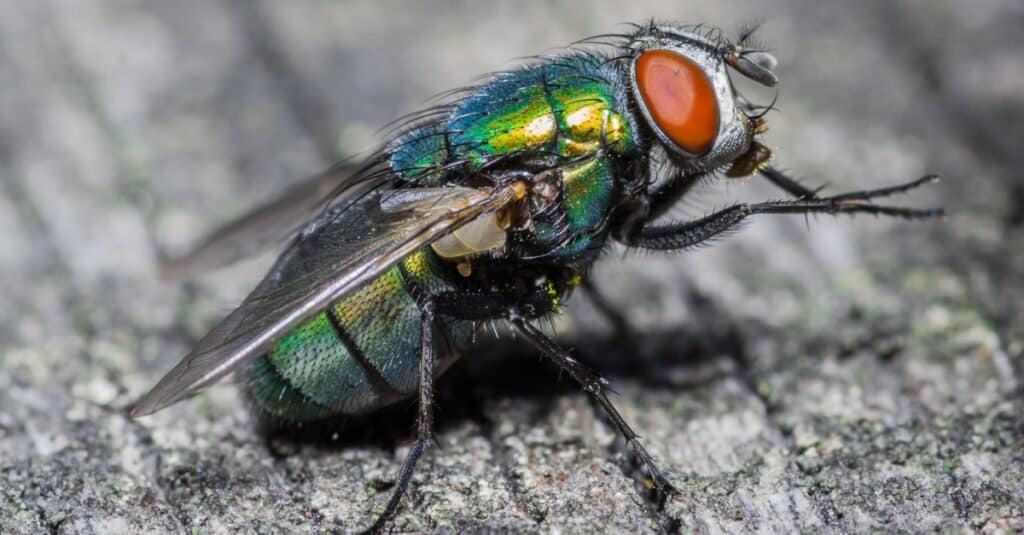
©Fotopstryk/Shutterstock.com
Ever wondered what it is like to be born as a fly? Here’s what a fly’s life cycle is like, from egg to young adult to adult insect.
Eggs
Like many different types of bugs, flies are hatched from eggs. Female flies lay their eggs in batches, ranging from 70-200 eggs at a time. They can lay as many as 500 eggs over a brief period of time. However, the amount of time will depend on optimal weather conditions.
For example, flies have a much shorter gestation period during warm and humid months, cutting down a multiple week process into only 5-7 days. Fly eggs will only hatch if they are kept moist and warm. Dark spaces tend to help this process along as well.
Larvae and Pupae
Flies hatch from their eggs and enter the larval stage, a period of their lives full of consuming. Larvae feed on their eggs and the substances around their eggs for a few days and up to a month. It depends on the ambient temperature and conditions in which their eggs were laid.
Once larvae have fed enough, they begin to form a pupa around themselves. By this time, they have grown over ten millimeters in length. But the larval maggot will shrink once it begins pupating.
Full grown flies emerge from their pupa after a few days and up to a full two weeks, depending on the temperature and various other factors. The pupating process is a key step in a fly’s life cycle, as this is when they develop and grow their wings.
Adults
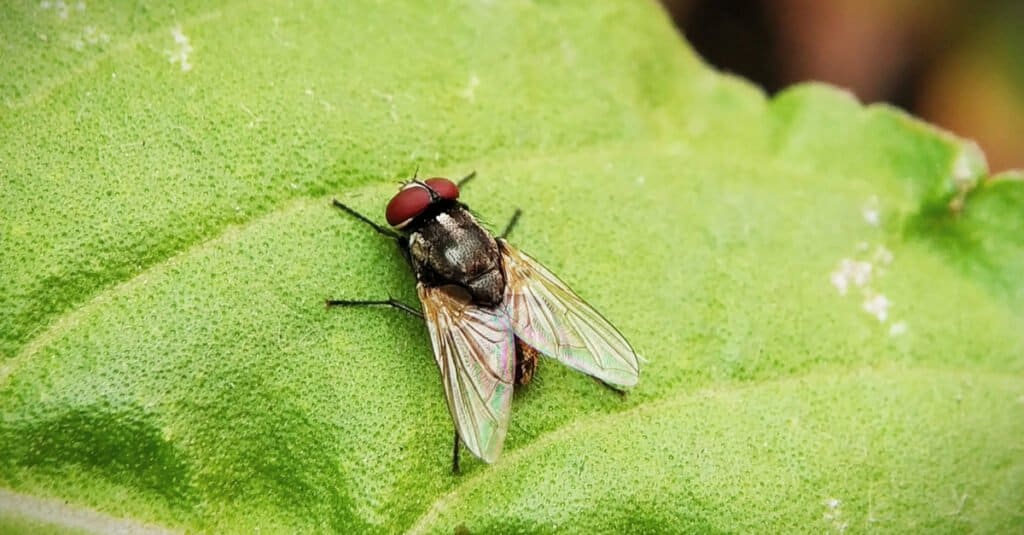
The female house fly is generally bigger than the male.
©IamBijayaKumar/Shutterstock.com
Flies hatch from their pupa selves and emerge as the house flies that we love to hate. They live as adult flies for roughly one week to as much as two months. Depending on the conditions of their environment and how many predators there are, this time may be short (including humans with fly swatters).
Adult flies can mate within hours of hatching from their pupa case. Their lifespan could be cut short at any moment. They will need an adequate area to lay their eggs however, and this often involves damp and warm environments.
Flies also must consume food before they can copulate, which can often lead to stress for the female flies. This is especially true because there is usually not an adequate amount of protein present in a fly’s diet in order to lay eggs. However, flies can lay a great deal of eggs. So, perhaps it’s for the best that it be a bit more complicated for them to accomplish this!
How Does Their Lifespan Compare to Bees?
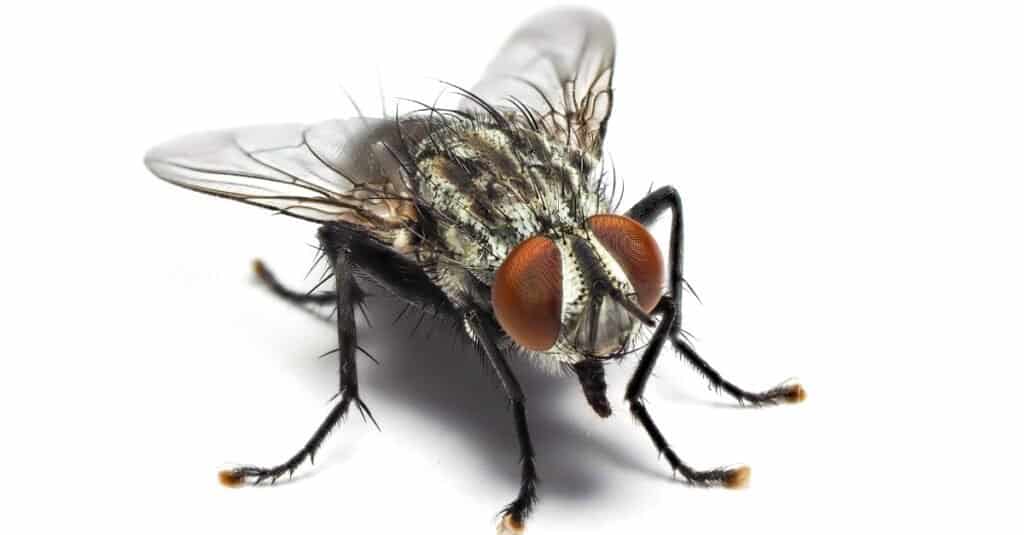
Adult flies can mate within hours of hatching from their pupa case, as their lifespan could be cut short at any moment.
©iStock.com/Pattra Jayasvasti
Flies appear to have a very interesting lifespan, especially considering just how many eggs a female fly can lay. However, how does this unique lifespan compare to that of the humble bumblebee?
Depending on the species, bees live a similar lifespan to flies. They average anywhere from a few weeks to a few months. But, just like flies, their lifespan will depend greatly on the time of year in which they were born.
Bees born in the fall tend to live nearly 6 months as opposed to a one to two month lifespan of a bee born in spring or summer. This is largely due to the amount of work that bees have to accomplish in the spring and summer. The fall tends to be kinder to bees.
Flies all have the same general hierarchy as well, while bees have a queen and worker bee system. Queen bees have been known to live nearly a decade depending on the species and type of bee!
Regardless, the lives of both house flies and bees is fraught with predation and environmental changes. However, it’s never a bad idea to let a bee live while you swat a house fly!
The photo featured at the top of this post is © Fotopstryk/Shutterstock.com
Thank you for reading! Have some feedback for us? Contact the AZ Animals editorial team.



